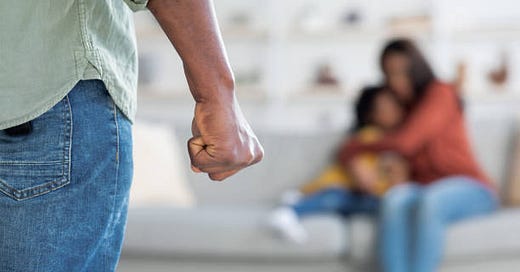It can take a long time for people to leave an abusive relationship. Sometimes, the abuse can continue for a few years before the victim decides to move out. It is common for such victims to face psychological issues, which impair their ability to interact with the world. Some of these include:
Loss of Self-Worth and Self-Esteem
In addition to the physical abuse or verbal attacks, many victims lose their self-respect. They start believing their abuser, with the victim accepting the abuser’s version of the description. Their loss of self-worth puts them in a self-imposed shell, which prevents them from speaking out against the abuser. Somewhere in their minds, they start believing the false narrative.
Social Isolation
When a victim decides to leave an abusive relationship, they find themselves unable to socialize. They prefer being alone with their thoughts. Such victims need to be encouraged to interact as much as possible. They need maximum exposure to the outdoors, meeting new people, and doing activities they enjoy.
Fear of Getting into a New Relationship
Will it be different next time? How do I trust anyone? Placing your emotional basket on someone else’s plate is scary. After all, it failed once. I cannot go through the same thing again. Is there any guarantee my next relationship will be better?
There are no guarantees. Entering a relationship entails placing your trust in another individual. Keep your radar on for red flags and be cautious. One bad relationship does not mean the second one has to be bad. However, take your time in building a relationship to see if both of you are compatible.
Fear of Commitment
Entering a new relationship can be challenging, and the prospect of commitment often feels even more daunting. It's natural to have fears and doubts. You might wonder if there’s something lacking within yourself that contributed to past relationship failures. These thoughts can create hesitation and make it difficult to fully embrace a new connection.
Overprotective Parenting
The fear of losing one’s children is often the reason why people stay in an abusive relationship. After all, they are most precious to a parent. However, the after-effects of abuse have a direct bearing on the parent’s relationship with their children. Survivors of domestic abuse may develop overprotective or controlling behaviors towards their children, stemming from their own trauma. This can lead to emotional codependency, where children struggle to develop healthy independence. As these children mature into adults, they may face significant challenges in forming and maintaining healthy relationships. Often, they unconsciously mirror the dysfunctional patterns they observed in their parent's behavior, perpetuating a cycle of unhealthy relationship dynamics.
Cannot Handle High-Pressure Situations
Another common issue with victims of abuse is that they may panic easily. They may be unable to function in pressure situations that require them to think and remain calm. Their ability to make decisions can be seriously impaired.
Get Help!
While the effects of abuse can be profound, it's important to recognize that survivors' responses are diverse and not universally negative. Many individuals, who have experienced abuse, emerge from their ordeals with remarkable resilience and strength. These survivors often develop a fierce determination to avoid repeating past patterns and to forge a healthier future.
Drawing on their experiences, they frequently demonstrate exceptional willpower and a positive outlook in overcoming their past traumas. This resilience enables them to build new, more fulfilling lives for themselves and their loved ones.
However, the journey to healing is complex and unique for each individual. Professional support from therapists specializing in trauma and domestic abuse can be invaluable. Additionally, participating in support groups can provide a sense of community, shared understanding, and practical coping strategies. These resources can significantly aid in the healing process and help survivors navigate their path to recovery and personal growth.
Source: https://wordinblack.com/2023/10/hope-for-survivors-life-after-domestic-abuse-exists/




